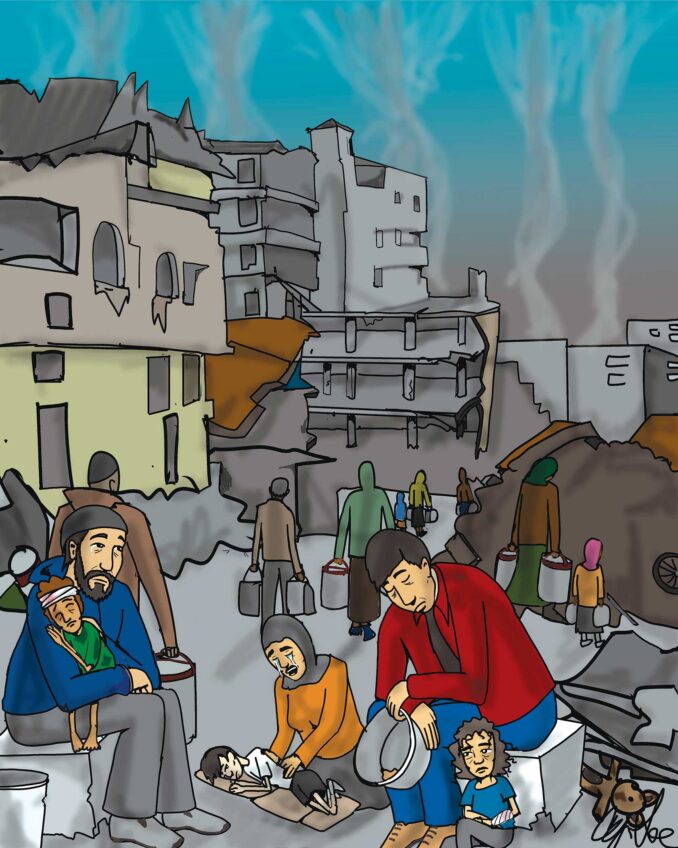Supporting moms: The vital role families play before, during and after birth
As the country highlights National Minority Mental Health Month, the AFRO would like to shine a spotlight on the many ways the whole family can help new mothers.
Ensuring a healthy and successful pregnancy is not just the mother’s responsibility — it’s a team effort. Experts say that when family members step up to support a new mother before, during and after her pregnancy, it can make all the difference in her health and overall well-being.
“A healthy body before conception sets a foundation for a healthy pregnancy, which in turn sets a great foundation for postpartum recovery,” said Arija Israel, a mother and maternal mental health advocate. “Frequent check-ins by close support is beneficial, as provider visits are typically infrequent.”
According to the University of California Los Angeles Health, during pregnancy, women will typically see their doctor every four weeks until they reach 32 weeks. After that, appointments are moved up to every two weeks until 36 weeks. Then, weekly appointments will be scheduled until the baby is born.
“Before pregnancy, support means ensuring she can access care, not just emotionally but structurally,” said Kavelle Christie, a health policy expert. “That includes helping her find a trusted provider, navigate private insurance or Medicaid and understand her rights and options. Families can walk alongside her through that process, not speak for her, but stand with her.”
Christie said during pregnancy, families should show up in ways that reinforce her autonomy and safety. That looks like respecting the mother’s birth plan, supporting her choices such as getting a doula or midwife care and being ready to advocate in health care settings where she may not be taken seriously.
Christie emphasized that maternal care needs to continue after birth, too.
“Families can make sure she’s not overlooked in the rush to care for the baby,” she said. “That includes helping with appointments, encouraging postpartum checkups and watching for signs of physical or emotional distress.”
Foster Wilson, a postpartum doula based in Los Angeles, emphasized the value of friends and family members checking in on mothers postpartum, bringing them warm, nutrient-dense meals such as soups and stews. Bringing healthy meals to stock the new mom’s fridge can be a powerful way to help her recover after birth.
Wilson said there is a need for “radical rest and healing after birth,” along with “proper nutrition and hydration.”
According to a study by Rennie Negron, administrative director of the Institute for Health Equity Research at Mount Sinai, when new mothers do not receive help with daily tasks after birth, it can increase their risk of developing postpartum depression.
If leaning on family is not the best option for a new mother, Heidi McBain, a professional counselor who specializes in maternal mental health, advises hiring a postpartum doula who can help look after the baby and the house while mom rests and recuperates.
Experts highlight that Black mothers could largely benefit from familial support as they navigate pregnancy.
“Black mothers face layers of challenges, from generational trauma, stigma around mental health, systemic racism, lack of access to culturally competent care, financial strains and more,” said Israel. “Black mothers more often than not suffer in silence due to the ‘strong Black woman’ narrative, convincing us that asking for help is a sign of weakness.”
According to a dy by Tulane University, Black mothers are three to four times more likely to die from pregnancy-related complications than white mothers, often due to discrimination and bias in health care.
“Their pain is often minimized,” said Christie. “Their concerns are more likely to be dismissed. That means families need to go beyond emotional support and step into advocacy. These systems were not built with Black mothers in mind, so we have to show up with urgency and clarity.”
McBain advised families to truly listen to what the new mother is saying, wanting and needing from them throughout the process.
“What are they asking you for, both verbally and nonverbally?” said McBain. “During my first pregnancy, I used to cry for no discernible reason. My husband would ask in a very concerned voice about what was wrong, and I’d usually cry back that I didn’t know. At which point, he’d simply give me a big hug. Sometimes that’s all you need when hormones are all over the place during pregnancy.”
Israel listed hormonal changes, sleep deprivation, brain fog, body image issues and societal pressures as a part of the “invisible load” of motherhood that families can be on the lookout for and help prevent it from overtaking the new mother.
Tashi McQueen is a political and educational beat writer for Afro.






